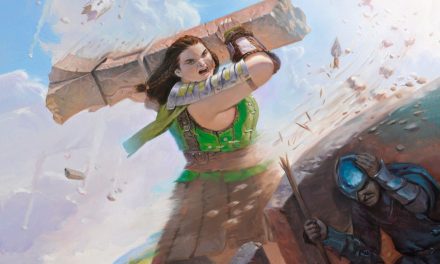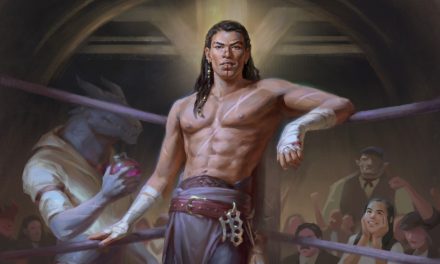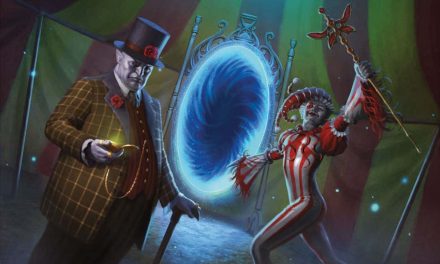From Merlin to Gandalf, Wizards have long been a staple of the fantasy genre and have long maintained their status as one of the most popular classes in D&D.
But when it comes to magic and those who study it, there is a wide variety to behold! With so many options for Wizard subclasses in D&D 5e, it’s easy to get a bit overwhelmed when making your character.
Wizard subclasses represent a kind of specialization for the character. Many are based on a particular school of magic, though others break the mold and stretch the very core of what a Wizard is capable of. Each of these subclasses brings with it a ton of flavor and interesting ways that the character can play.
In this article, we’re going to look over each of the Wizard subclasses in D&D 5e and rank them.
Theme and style will be mentioned, but we’ll specifically be looking at the subclass’s mechanics, impact on the game, and how powerful they are in general situations.
Which Wizard subclass will take the top spot in this battle of the brains?
Find out now!
A Quick Disclaimer
I think it’s worth pointing out that there really isn’t such a thing as a “bad” Wizard subclass in D&D 5e.
Much like when I was ranking all of the Cleric subclasses, the fact is that the Wizard spell list is incredibly powerful. Even playing a Wizard subclass that appears at the bottom of this or other rankings means that you can bring some serious arcane value to your party.
Sure, you’ll have an area of specialization. But the options are truly limitless for Wizards, which is why it’s a bit difficult to make a ranking like this for this class.
Don’t hesitate to jump into the comments with your own takes, thoughts, and rankings!
Number 13 – Transmutation Wizard
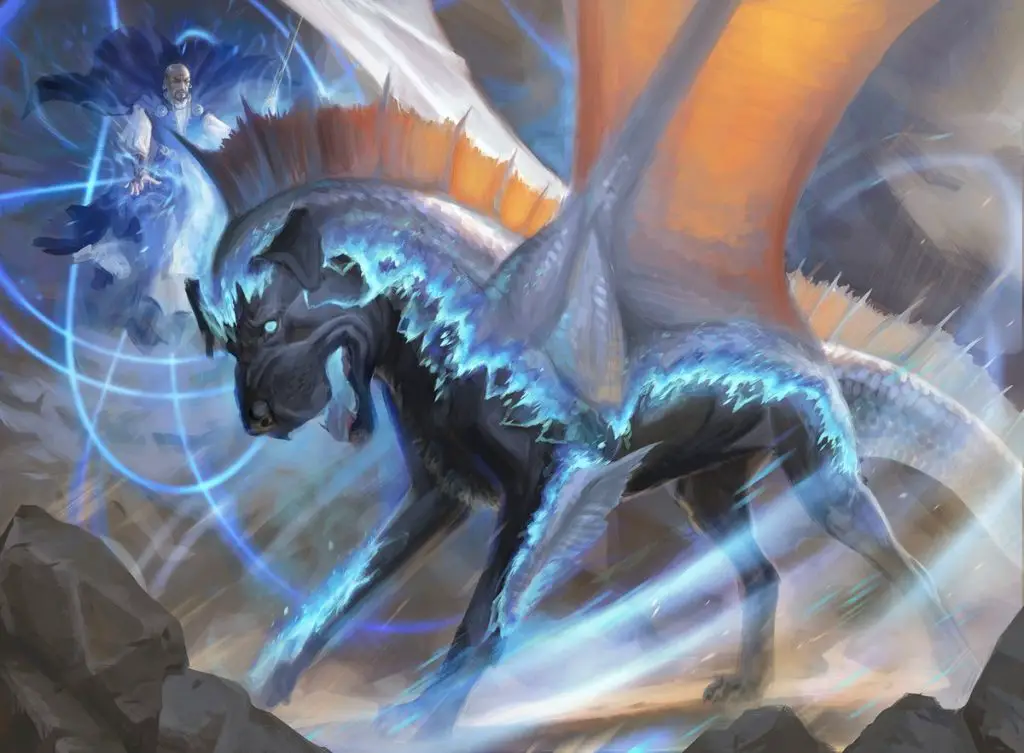
The Transmutation Wizard is all about change. These Wizards specialize in spells that tweak physical properties—altering materials, states, and even the fundamental nature of reality. Their signature ability, Transmuter’s Stone, grants various beneficial effects like increased speed or resistance to damage.
Think of the Transmutation Wizard as the MacGyver of the magical world. They might not be the first choice in a straight-up brawl, but when you need to turn a pile of rubble into a makeshift bridge or craft a quicksilver escape route, you’ll be glad they’re around.
While the concept of a magical alchemist is undeniably cool (especially to other fans of “Full Metal Alchemist”), the Transmutation Wizard admittedly falls a bit short as a total package. Their features are more situational and utility-focused but without the clear and direct prowess that the other Wizard subclasses have. This can leave them feeling underwhelming compared to their peers.
Don’t get me wrong—there’s a lot of fun to be had with a Transmutation Wizard! If you enjoy creative problem-solving, this subclass can be incredibly rewarding. My gripe is mostly that the Transmutation Wizard is good almost entirely because the base Wizard class is so good.
In an “apples to apples” kind of ranking, it unfortunately takes the last place.
Transform reality with the full guide to the Transmutation Wizard!
Number 12 – Graviturgy Wizard

The Graviturgy Wizard manipulates the forces of gravity to control the battlefield.
They can increase or decrease the weight of objects, move enemies around with gravitational waves, and even create localized areas of intense gravity. Their abilities can be both flashy and strategic, making them masters of positioning and crowd control.
While Graviturgy offers some unique and intriguing abilities, it often lacks the raw power or versatility found in other subclasses. Many of its features require careful planning and positioning, which can be challenging in the fast-paced chaos of combat.
Additionally, its gravitational abilities don’t always neatly stack with the Wizard’s spell list, leaving it feeling a bit disjointed at times.
However, Graviturgy Wizards can be incredibly rewarding for players who enjoy tactical gameplay and battlefield control. If you love the idea of manipulating the very forces of gravity to outmaneuver your foes, this subclass might be right up your alley.
Just be prepared for a bit of a learning curve as you master the intricacies of gravitational manipulation.
And remember: with great power comes great responsibility—and the occasional physics lesson!
Harness pure power with the full guide to the Graviturgy Wizard!
Number 11 – Conjuration Wizard
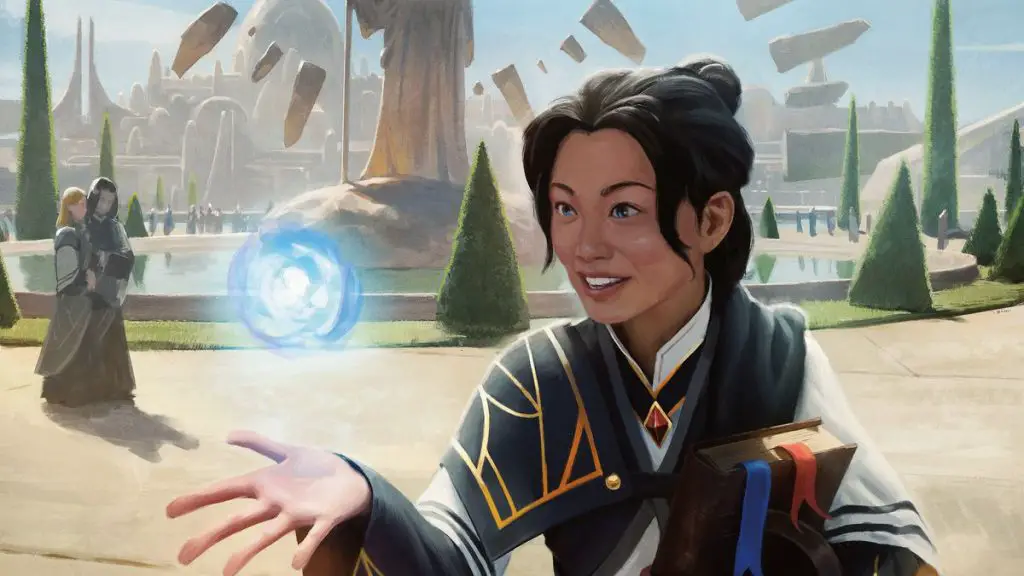
The Conjuration Wizard specializes in summoning creatures and objects out of thin air.
Whether it’s calling forth a loyal elemental ally, creating a magical barrier, or teleporting across the battlefield, these Wizards excel at making things appear (and disappear) when needed. Their signature ability, Minor Conjuration, allows them to create small, non-magical objects temporarily, which can be surprisingly handy.
While the Conjuration Wizard offers a lot of versatility and utility, it often lacks the sheer combat effectiveness found in other Wizard subclasses.
Summoned creatures can be useful but are sometimes limited by their relatively low power or the need for concentration. Additionally, the subclass’s abilities can feel a bit niche, making it less impactful in direct combat scenarios.
Conjuration Wizards shine in creative problem-solving and utility roles. If you enjoy thinking on your feet and coming up with inventive uses for your spells, this subclass can be a lot of fun. Just be prepared for some trial and error as you find the best ways to leverage your conjured creations in various situations.
Sometimes, the best magic is having exactly what you need, exactly when you need it!
Summon your skills with the full guide to the Conjuration Wizard!
Number 10 – Evocation Wizard
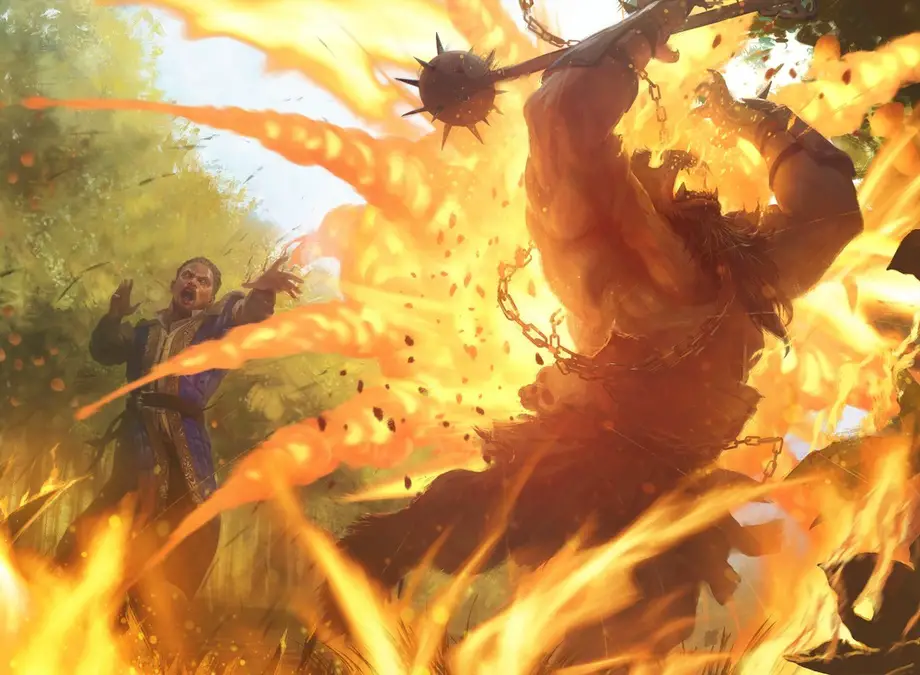
Think of the Evocation Wizard as the magical demolition expert. When you need something obliterated, they’re the ones to call. Just imagine the party’s face when you nonchalantly ask, “Fireball or lightning bolt?” during a heated battle.
Evocation Wizard is the quintessential blaster mage, specializing in spells that deal massive amounts of damage. Fireballs, lightning bolts, and other destructive spells are their bread and butter.
Meanwhile, their features focus on maximizing the impact of their spells while minimizing collateral damage to allies, thanks to features like Sculpt Spells, which allows them to create safe zones within their destructive magic.
However, while the Evocation Wizard excels at dealing damage, it often lacks versatility.
In a game where flexibility and adaptability can be crucial, the Evocation Wizard’s focus on raw power can sometimes be a limitation. Additionally, while potent, their area of expertise can feel somewhat one-dimensional compared to the broader utility offered by other Wizard subclasses.
If you love the idea of being the party’s heavy artillery, the Evocation Wizard is perfect for you.
There’s a certain satisfaction in watching your enemies disintegrate under a well-placed fireball. Just be aware that your role will often revolve around dealing damage, so make sure your party has other bases covered.
And remember, with great power comes great responsibility—and perhaps a bit of a reputation for being a tad… explosive.
Make some noise with the full guide to the Evocation Wizard!
Number 9 – Necromancy Wizard
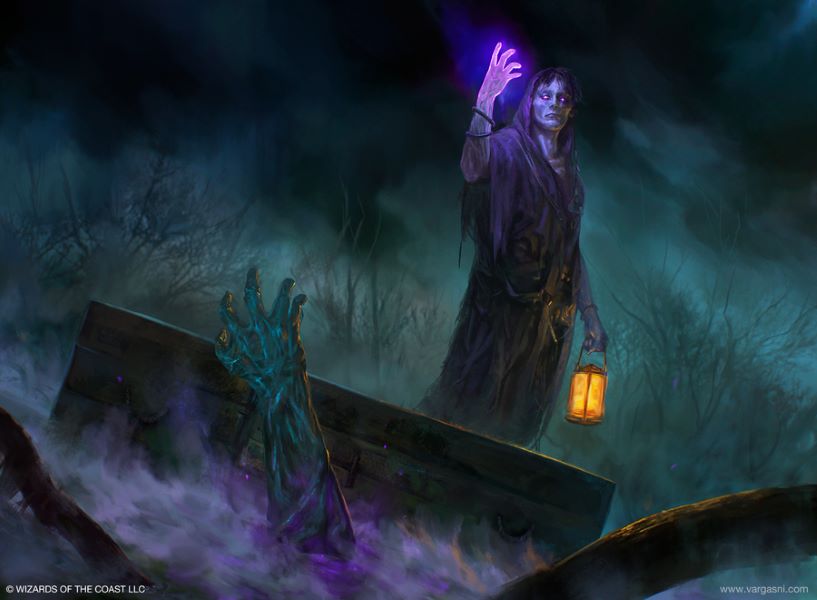
Think of the Necromancy Wizard as the goth kid of the magical world, always dressed in black and hanging out in graveyards. They might not be the life of the party, but when you need someone to raise an army of skeletons or drain the life force from a pesky enemy, they’re your go-to.
The Necromancy Wizard delves into the darker aspects of magic, focusing on spells that manipulate life and death. They can drain life energy from foes, raise undead minions to do their bidding, and even cheat death themselves.
Their signature features include Grim Harvest, which allows them to regain hit points when they kill enemies with spells, and Undead Thralls, which enhances their control over undead creatures.
While the Necromancy Wizard offers a unique and thematic playstyle, it often struggles with versatility and party dynamics.
Raising undead minions can be powerful but also requires careful management and can sometimes create tension within the party due to the morally gray nature of necromancy. Additionally, their focus on life-draining abilities can be less impactful in scenarios where direct damage or utility is needed.
Necromancy Wizards can be incredibly rewarding for players who enjoy a darker, more thematic approach to magic. If you love the idea of commanding an army of undead or siphoning life from your enemies, this subclass can be a lot of fun.
Just maybe be prepared for some potential ethical debates with your fellow adventurers. Not everyone appreciates a zombie butler, so maybe keep your undead minions on a short leash during social gatherings.
Get spooky with the full guide to the Necromancy Wizard!
Number 8 – Abjuration Wizard
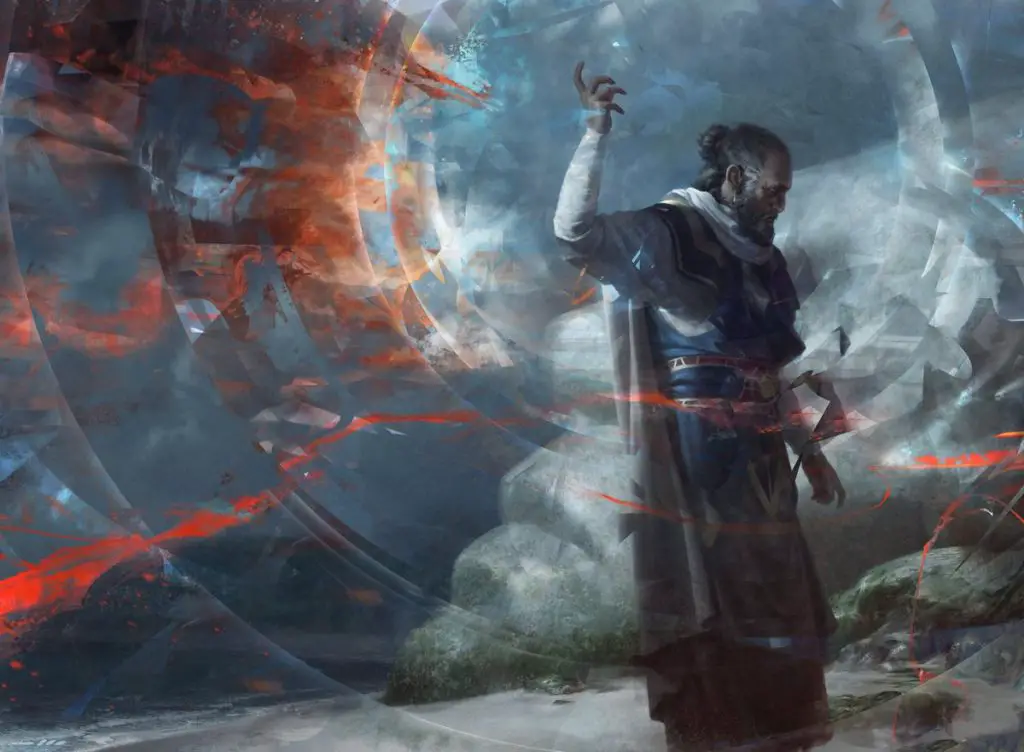
Think of the Abjuration Wizard as the magical bodyguard, always ready to throw up a shield or counter a spell to protect their friends. They might not get the glory of the final blow, but when the dragon’s breath weapon fizzles out harmlessly against their Arcane Ward, everyone will be singing their praises.
The Abjuration Wizard specializes in protective magic, focusing on spells that shield, ward, and banish. Their abilities are designed to create barriers and negate harmful effects, making them the guardians of the arcane world.
With features like Arcane Ward, which provides a magical shield that absorbs damage, and Improved Abjuration, which enhances their ability to counter and dispel magic, Abjuration Wizards are the ultimate defensive spellcasters.
While the Abjuration Wizard excels at protection and defense, it can sometimes feel less flashy compared to its more offensively inclined counterparts.
Their role often revolves around mitigating damage and countering enemy spells, which, while crucial, may not always be as immediately gratifying as dealing massive damage or summoning creatures. Additionally, their spell list is heavily focused on defensive and utility spells, which can limit their versatility in other areas.
Abjuration Wizards are invaluable to any party, especially in campaigns with a lot of magical threats.
If you enjoy playing a supportive and strategic role, focusing on keeping your allies safe and neutralizing enemy magic, this subclass is perfect for you. Just be prepared for a more subtle form of heroism, where your greatest victories might be preventing disasters before they happen!
Play it safe with the full guide to the Abjuration Wizard!
Number 7 – Illusion Wizard
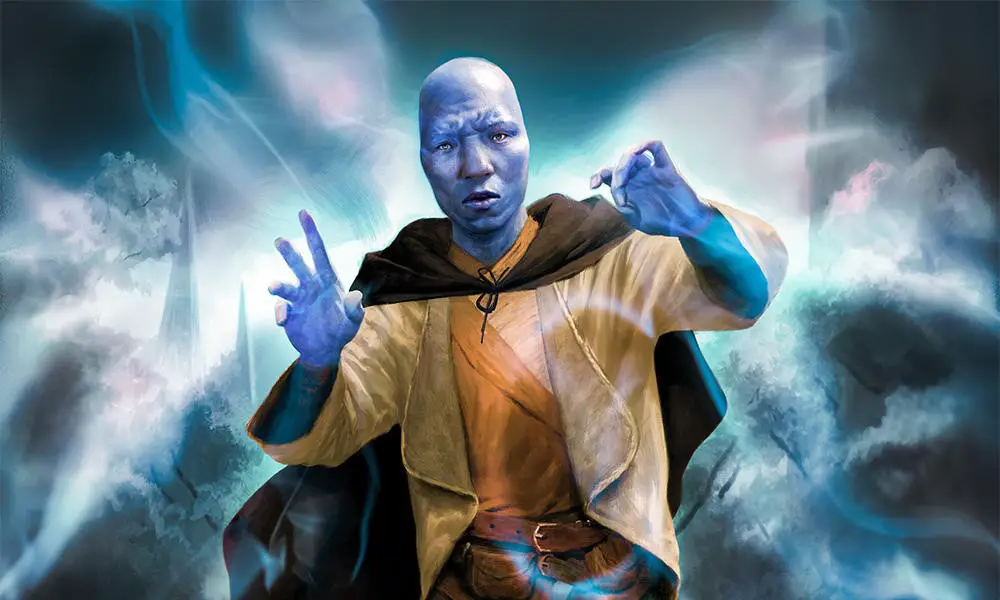
Think of the Illusion Wizard as the magical prankster, always ready with a clever ruse or a mind-bending trick. They might not have the raw power of an Evocation Wizard, but when you need to convince a dragon that its treasure hoard is actually a pile of rocks, they’re the ones to call.
The Illusion Wizard specializes in spells that deceive the senses and manipulate perception. They can create convincing illusions to trick enemies, hide allies, or even alter the appearance of the environment.
Their abilities, like Improved Minor Illusion and Malleable Illusions, enhance their capacity to create and modify illusions, making them masters of trickery and misdirection.
But let’s have some real talk for a moment… Illusion Wizards are a bit weird to fit into this ranking, so they’re landing in the middle. Let me explain…
In the right hands and in a group with lots of opportunities for roleplaying and interacting with the environment, Illusion Wizards would shoot straight towards the top of this ranking. Their spells can turn the tide of a battle with a well-placed illusion or create endless roleplaying opportunities.
However, in a group that doesn’t play that way or in the hands of someone who is perhaps less creative or still learning the ropes of how D&D works, there are fewer chances for an Illusion Wizard to shine. Their effectiveness can be highly situational and dependent on the DM’s willingness to engage with their illusions creatively.
Illusion Wizards can be incredibly rewarding for players who enjoy thinking outside the box and using their imagination to solve problems.
If you love the idea of outsmarting your enemies with clever tricks and deceptions, this subclass is for you. Just be prepared for some trial and error as you learn to maximize the potential of your illusions.
And hey, who doesn’t love a good disappearing act? Just make sure your party knows when it’s all part of the plan!
Confuse and infuriate foes with the full guide to the Illusion Wizard in D&D 5e!
Number 6 – Enchantment Wizard
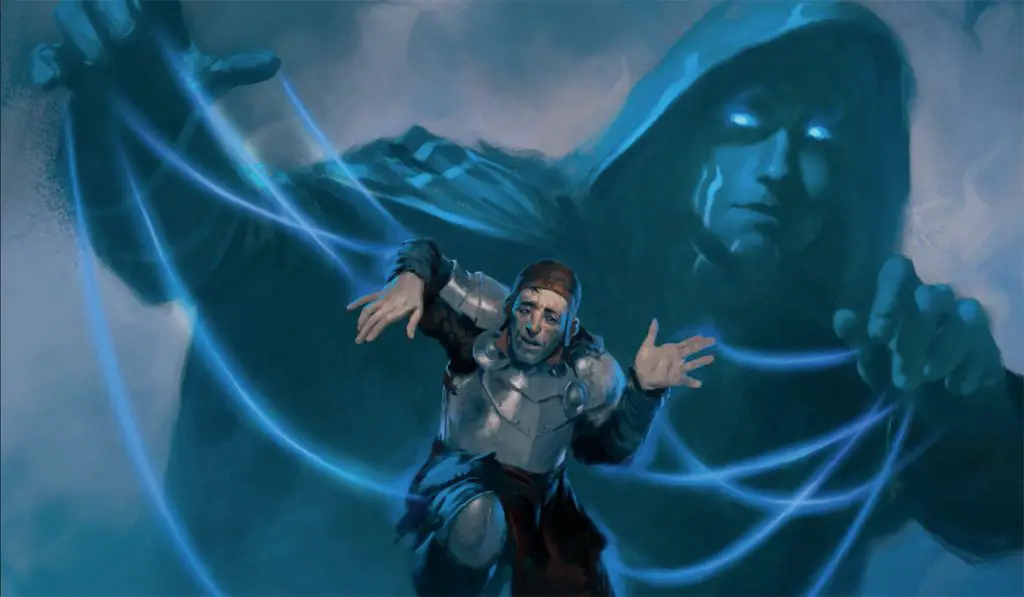
Think of the Enchantment Wizard as the magical smooth-talker, always ready with a charming smile and a persuasive word. They might not be the heavy hitters of the group, but when you need to talk your way past a guard or convince an angry Giant to take a nap, they’re your best bet.
The Enchantment Wizard specializes in spells that influence the minds and emotions of others. They can charm, compel, and even dominate their foes, turning enemies into allies and making sure their party is always one step ahead.
With abilities like Hypnotic Gaze, which can incapacitate a creature with a mere look, and Instinctive Charm, which can redirect attacks, Enchantment Wizards are the ultimate manipulators.
Enchantment Wizards land in the upper-middle of the ranking due to their powerful and versatile abilities to control the battlefield without necessarily dealing damage. Their spells can defuse tense situations, turn the tide of battle, and provide unique solutions to problems.
However, their effectiveness can sometimes be limited by creatures’ resistances to charm effects and the moral quandaries that can arise from mind control. Additionally, the reliance on saving throws can make their spells hit-or-miss in certain high-stakes scenarios.
Nevertheless, Enchantment Wizards are fantastic for players who enjoy social interactions and creative problem-solving. If you love the idea of bending others to your will and using your wits to outmaneuver opponents, this subclass is perfect for you.
(Just be prepared for some ethical debates and the occasional creature that’s immune to your charms.)
Make some friends with the full guide to the Enchantment Wizard!
Number 5 – Order of Scribes Wizard

Wizards are pretty bookish characters to begin with, but the Order of Scribes Wizard takes that even further. These characters are the Supreme Alpha Nerds who truly understand exactly what is meant by the saying that “knowledge is power.”
This subclass revolves around their spellbook, with abilities like Awakened Spellbook, which allows them to change the damage type of their spells, and Manifest Mind, which lets them project an ethereal version of their spellbook to cast spells from a distance.
The Order of Scribes Wizard ranks high due to its incredible versatility and the ability to adapt spells on the fly. Their features enhance their spellcasting flexibility, making them invaluable in a variety of situations.
Additionally, the ability to change spell damage types and cast spells through their manifested mind provides both tactical advantages and serious creative opportunities. However, their power relies heavily on their spellbook, so losing it can be a significant setback.
Just remember: with great knowledge comes great responsibility—and perhaps a bit of a tendency to correct everyone’s grammar. But hey, when you can rewrite the laws of magic on the fly, a little pedantry is a small price to pay.
Order of Scribes Wizards are perfect for players who love the idea of being the ultimate magical scholar. If you enjoy having a solution for every problem and the ability to adapt your spells to fit any situation, this subclass is for you.
And remember, it’s always wise to be extra nice to your local librarian!
Hit the books with the full guide to the Order of Scribes Wizard!
Number 4 – Bladesinger Wizard
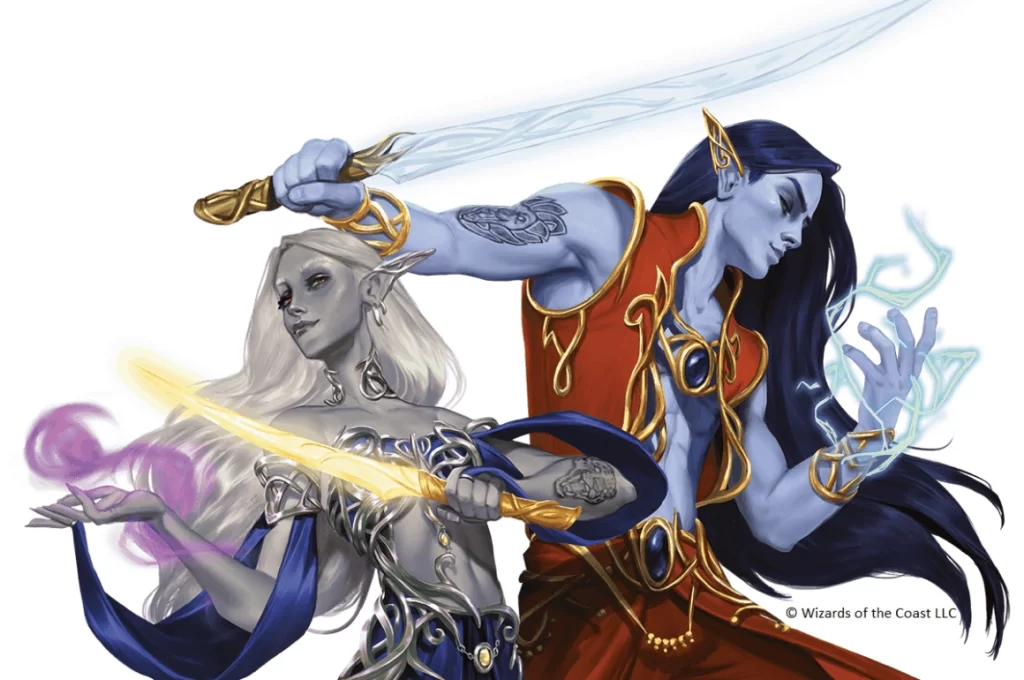
The Bladesinger Wizard combines the arcane mastery of a wizard with the agility and combat prowess of a fighter.
These wizards use their Bladesong ability to enhance their combat capabilities, granting them increased AC, speed, and concentration on spells. They literally dance through the battlefield, casting spells and striking with finesse, embodying the perfect blend of martial and magical skill.
There is a very high skill ceiling when it comes to Bladesinger Wizards. This is not generally a class that I would advise new D&D players to dive straight into unless they’re ready to do a ton of homework on top of the normal Wizard homework.
The Bladesinger requires a deep understanding of both spellcasting and melee combat tactics, making it a challenging but rewarding subclass to play.
However, for those who do master the tactical art of Bladesinging, it’s quite a sight to behold. Their ability to seamlessly switch between casting spells and engaging in melee combat makes them incredibly versatile and effective in various situations.
Bladesinger Wizards are ideal for players who enjoy a dynamic and engaging playstyle that requires both strategic thinking and quick reflexes.
If you love the idea of being a spell-slinging swordsman who can dance around the battlefield with grace and precision, this subclass is for you. Just be prepared for a steep learning curve and the need to balance your spellcasting with your swordplay.
So, put on your dancing shoes, grab your spellbook, and get ready to dazzle both friend and foe alike!
Embrace Elven tradition with the full guide to the Bladesinger Wizard!
Number 3 – War Magic Wizard
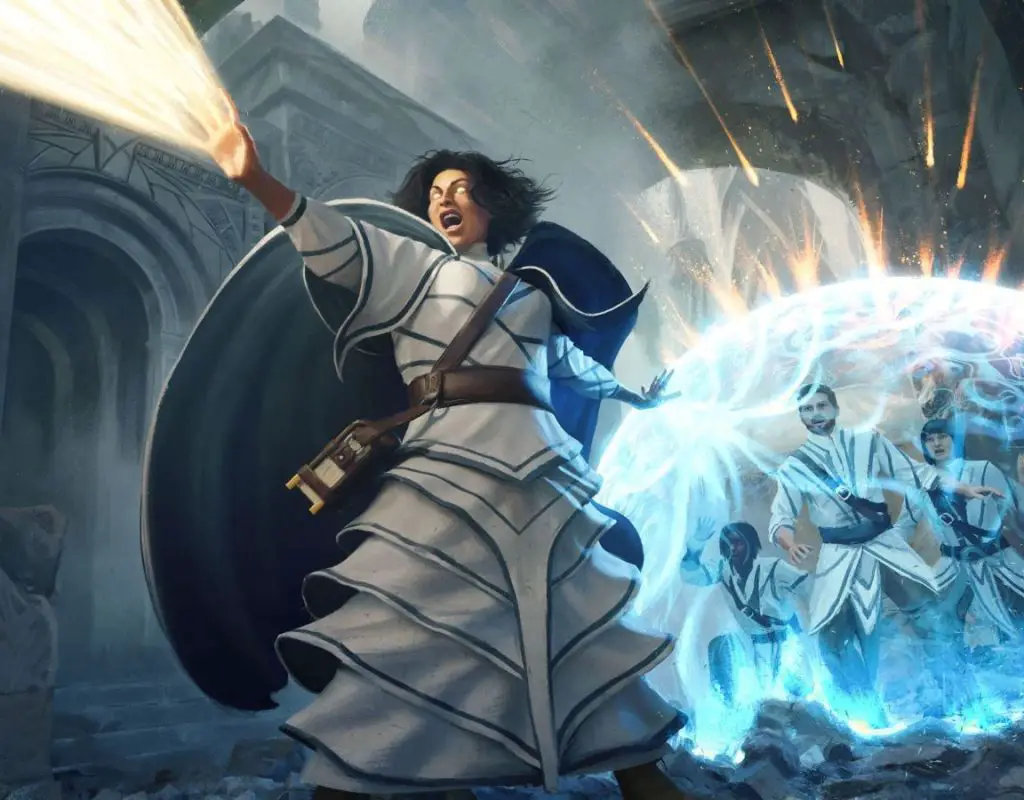
For the life of me, I cannot figure out why it seems that everyone is constantly dunking on the War Magic subclass. This is almost certainly the most generally underrated Wizard subclass and quite possibly one of the most underrated in all of D&D 5e!
The War Magic Wizard is a battlefield tactician, combining offensive and defensive magic to dominate combat. They excel at maintaining concentration on spells, deflecting attacks, and delivering powerful strikes. With abilities like Arcane Deflection, which boosts their AC or saving throws, and Tactical Wit, which enhances their initiative, War Magic Wizards are always ready for a fight.
War Magic Wizards bring a unique blend of resilience and aggression to the table, making them incredibly versatile in combat. Their ability to enhance their defenses while maintaining offensive pressure allows them to adapt to various situations and keep their allies safe.
War Magic Wizards are perfect for players who want to be at the forefront of battle, using their spells not just for raw power but for strategic advantage.
If you enjoy being the linchpin of your party’s combat strategy, deflecting attacks, and delivering decisive blows, this subclass is for you. Be prepared to surprise everyone with just how effective you can be when you combine arcane offense and defense!
Think of the War Magic Wizard as the magical equivalent of a seasoned general. They might not have the flashiest spells, but their tactical acumen and battlefield awareness make them indispensable.
And hey, when you can deflect a fireball and still have time to launch a counterattack, who’s really laughing now?
Become a tactical powerhouse with the full guide to the War Magic Wizard!
Number 2 – Chronurgy Wizard
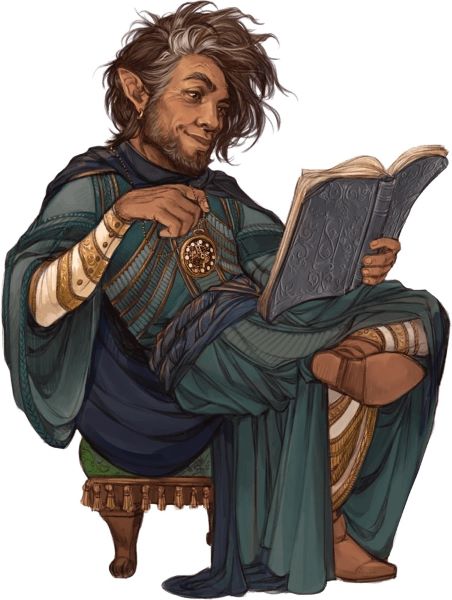
The Chronurgy Wizard manipulates time itself, bending the flow of moments to their advantage. They can slow down enemies, speed up allies, and even alter the outcome of events with their time-twisting abilities.
With features like Chronal Shift, which allows them to force rerolls on attacks, saves, or checks, and Momentary Stasis, which can freeze a creature in time, Chronurgy Wizards are masters of temporal manipulation.
They might not have a DeLorean, but they can certainly make you feel like you’re living in a time loop.
Chronurgy Wizards earn their high ranking due to their incredible versatility and game-changing abilities. Their control over time allows them to adapt to almost any situation, providing both offensive and defensive benefits.
The ability to reroll crucial moments can particularly turn the tide of battle, while their other abilities offer unique solutions to problems that no other subclass can provide. This makes them invaluable in both combat and roleplaying scenarios.
Chronurgy Wizards are ideal for players who enjoy a strategic and flexible playstyle. If you love the idea of manipulating time to gain the upper hand and enjoy the challenge of using your abilities to their fullest potential, this subclass is for you.
So, grab your hourglass, set your clocks, and get ready to show everyone that time is on your side!
Master potential with the full guide to the Chronurgy Wizard!
Number 1 – Divination Wizard
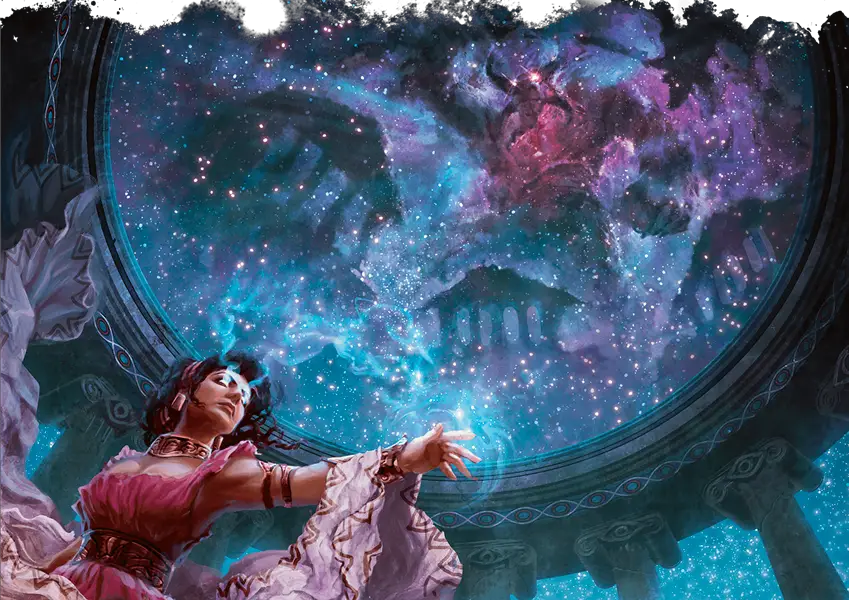
You saw this coming right? As it just so happens, so did the Divination Wizard!
Specializing in the art of foresight, Divination Wizards use their abilities to predict and influence future events. With spells that allow them to see into the future, detect hidden truths, and gain insight into the past, they are the ultimate seers.
Their signature ability, Portent, lets them roll dice at the start of the day and use those rolls to replace any attack roll, saving throw, or ability check, effectively altering the course of events.
Divination Wizards take the top spot due to their unparalleled ability to control the flow of events and provide critical support to their party. The Portent ability alone is a game-changer, allowing them to turn potential failures into successes and vice versa.
Their other abilities, like Expert Divination, which grants them spell slots back when they cast divination spells, and Third Eye, which offers various forms of enhanced perception, make them incredibly versatile and powerful.
In both combat and roleplaying scenarios, Divination Wizards can turn the tide with their foresight and insight.
Divination Wizards are perfect for players who love the idea of being the ultimate strategist and support character. If you enjoy using your foresight to outmaneuver enemies and guide your party to victory, this subclass is for you.
So polish your crystal ball, shuffle those runestones, and get ready to show everyone that knowing is way more than only half the battle!
Control fate with the full guide to the Divination Wizard!
Conclusion – Ranking Every Wizard Subclass in D&D 5e
And there you have it, dear spellcasters—our definitive ranking of the Wizard subclasses in D&D 5e!
We’ve journeyed through the arcane arts, from the transformative wonders of Transmutation to the prophetic prowess of Divination, and everything in between.
Remember, while our rankings provide a general guide, the best subclass for you is ultimately the one that fits your playstyle and sparks your imagination.
Whether you’re an aspiring Bladesinger ready to dance through the battlefield or a simple Necromancer who just wants to raise a family, the most important thing is to have fun and create magical moments with your party.
But now it’s your turn and we’d love to hear your thoughts!
Do you agree with our rankings or have a different take on the best Wizard subclass? Share your opinions, epic stories, and arcane insights in the comments below.
And if you enjoyed this article, be sure to subscribe to the Tabletop Joab newsletter for more tips, tricks, and tales from the world of tabletop gaming.
Until next time, may your spells be powerful, your dice rolls be high, and your adventures be legendary. Happy casting!
You can find all of the core Wizard subclasses in the 5e Player’s Handbook.
The War Magic Wizard in Xanathar’s Guide to Everything.
Find the Bladesinger and Order of the Scribes Wizard subclasses in Tasha’s Cauldron of Everything.
Get the Chronurgy and Graviturgy Wizard subclasses in the Explorer’s Guide to Wildemount.



